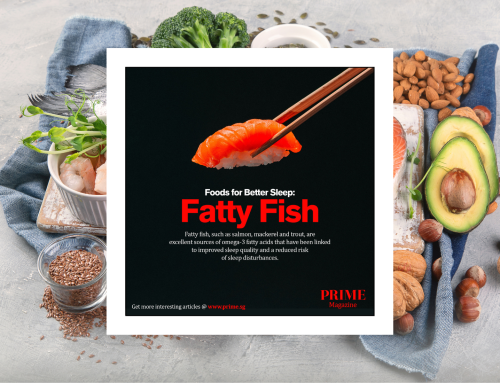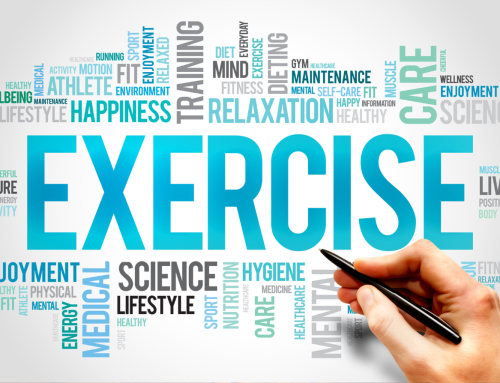We all have that one friend who can eat anything that they want and not put on any weight at all. While many find that they need to watch their food intake carefully and ensure a balanced diet in order to maintain their weight, there are others – blessed with naturally high metabolism – who need not worry about these things. If you are not one of those people, fret not! There are ways that you can boost your metabolism naturally.
Metabolism is a chemical process where food is converted into energy. A high metabolism therefore means more energy and the higher your metabolism, the more calories you burn. This is why those with higher metabolic rates find it easier to both lose and keep off the weight.
Do you really need a metabolism boost?
There are several factors that determine metabolism, including genes, body composition, gender, activity level and age. While some of these factors can be controlled, others cannot. So how do you know if you really need to take control of boosting your metabolism?
Here are some common signs of low functioning metabolism to look out for:
- Ongoing fatigue
- Feeling cold all the time Thinning hair
- Dry skin
- Constipation
- Struggling to lose weight
- Dry mouth and excessive thirst Low energy levels
- Falling sick often
Here are some easy ways you can kick your metabolism into overdrive:
Try out High Intensity Interval Training (HIIT)
Any form of exercise is always good for keeping metabolic function working, especially into old age. While metabolic function is generally thought to decline with age, some studies have found that staying active and maintaining muscle mass can prevent or slow down the decline.
High Intensity Interval Training (HIIT) is a form of exercise that features intervals varying between periods of all-out effort and periods of rest. HIIT is known for its ability to
kick start metabolic functioning better than steady-state workouts; quick bursts of intense exercises such as sprinting, cycling and plyometrics for instance can help the body to continue burning calories for hours even after the workout is complete. This is known as the “afterburn effect.”
As an added bonus, HIIT workouts by default require less time than traditional workouts. They pack in more health benefits in a shorter period as well. Besides burning more fat throughout the day, HIIT workouts are also beneficial for cardiovascular function and improving respiratory endurance and stamina.
Choose the right foods
Certain foods can slow down digestive processes while certain foods can help the body to use and expend energy better – it is important to make good choices when it comes to your diet. Inflammatory foods for instance are recognised and processed by the body as toxins. This triggers the immune system’s fight or flight response, increasing the production of stress hormones and simultaneously slowing down metabolic functioning. Many of these inflammatory foods are disguised as “healthy” food and are responsible for unwanted weight gain, thyroid dysfunction, hormone imbalance and digestive stress.
Here are some common inflammatory foods that should be avoided as far as possible:
- Sugary drinks
- Processed foods
- Refined vegetable oils
- Artificial sweeteners
On the other hand, there are some fat-burning foods that make the body work harder to break down and metabolise, using up more calories. Protein for instance is associated with a strong metabolism – having healthy high-protein snacks throughout the day is one simple way to boost metabolism and also keep you full longer. Protein also helps to keep energy and blood sugar stable while building lean muscle mass which helps to burn more calories.
Other known metabolism boosters include:
- Green tea
- Garlic
- Spicy food
- Apple cider vinegar
Getting adequate rest
Lack of quality sleep has been shown to slow down metabolism in both men and women as the body works to conserve energy when it is
fatigued. Studies show that this might also have to do with the brain’s secretion of cortisol when the body is under stress, which leads the body to store more fat. High cortisol levels associated with a lack of sleep have been shown to be linked to poor mental functioning, weight gain and an increased resistance to insulin which controls blood sugar.
It is also important to make sure that you get enough rest between your exercise days so as to keep your hormone levels balanced. Too much exercise results in muscle loss, fatigue and a lower metabolic rate, contrary to what you
might expect. Intense workouts without proper rest will increase cortisol levels which can have adverse effects on health. The body will not be able to recover from the workouts and the processes that repair and build healthy muscle tissue will become affected as well.
Get off your butt!
Sitting for too long is detrimental to your health – this is especially unfortunate for many of us who are deskbound and tied to 9-5 jobs. Long periods of sitting burns fewer calories than standing and can lead to weight gain. For instance, did you know that standing up at work for an afternoon instead of simply sitting in your office chair can help you burn an extra 174 calories? Try standing up for short periods instead to break up the amount of time that you spend sitting down in
the office. Otherwise, if you are ready to fully commit to it, you could even invest in a standing desk!
Stop dieting and fuel your body
Many assume that the surest way to lose weight would be to cut down on calories. While this is true to some extent, some take it too far and go on extreme diets that take a toll on metabolism. Our bodies use calories as fuel – we need to eat consistently to keep functioning at our best. It is essential that the body obtains various nutrients such as proteins, carbohydrates, fats, minerals and
vitamins to produce energy. When you cut calories and increase exercise, the body goes into “starvation mode” and signals to your metabolic hormones to hold on to every calorie that you are consuming in order to ensure survival!
Lack of energy (calories) also means that the metabolism has less fuel and the body is therefore more vulnerable to illness and premature aging. A sluggish metabolism means lower levels of immunity and increased risk of infections.
It is therefore of utmost importance that we feed our body well and not deprive it of its required fuel.
Never skip breakfast
If it’s been said once, its been said a hundred times: breakfast is the most important meal of the day. While you were asleep, your body was working hard to repair and rebuild itself from the stress of the day and that takes up more
energy than you think. Skipping breakfast would only slow down your metabolism because your body is not going to work on burning calories when it is in hunger. In fact, it goes into energy conservation mode, storing as much as it can. Starting the day with breakfast is therefore crucial to ensuring that your body burns more calories throughout the day.




